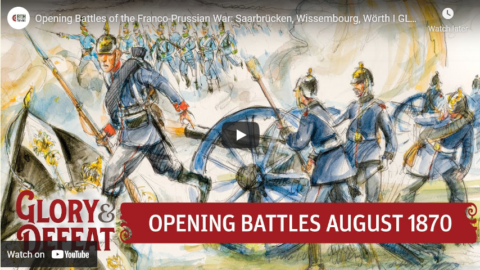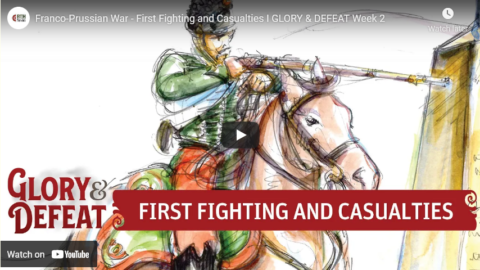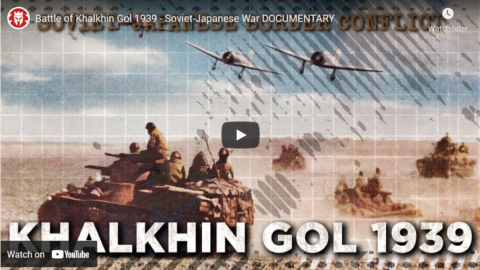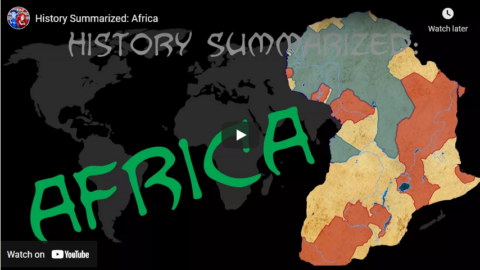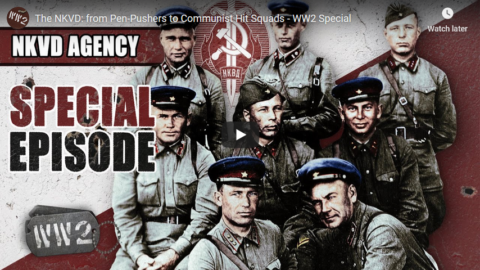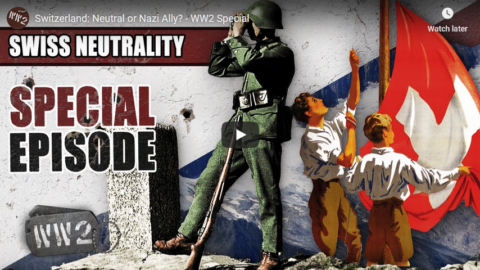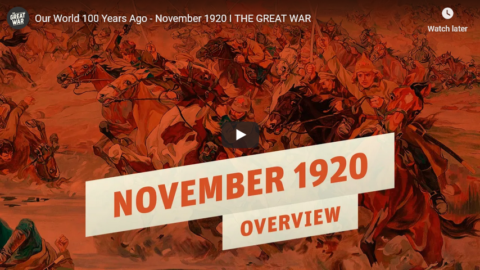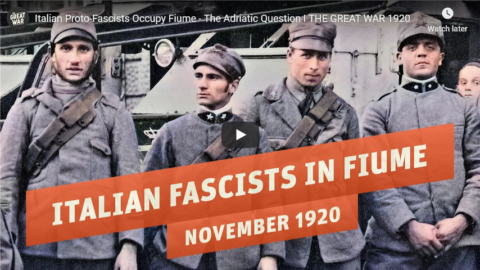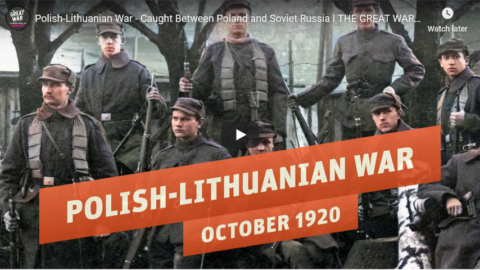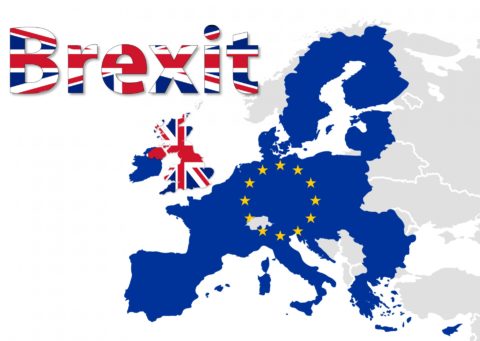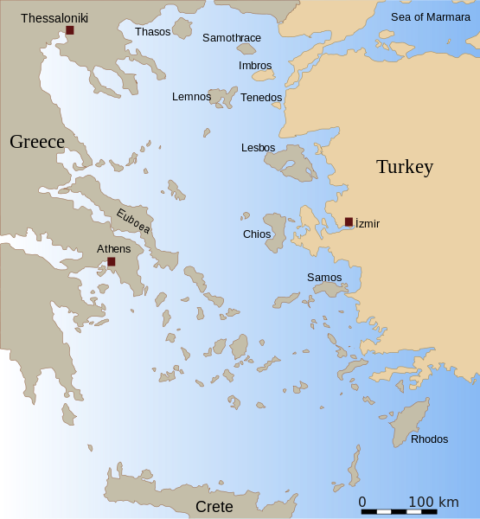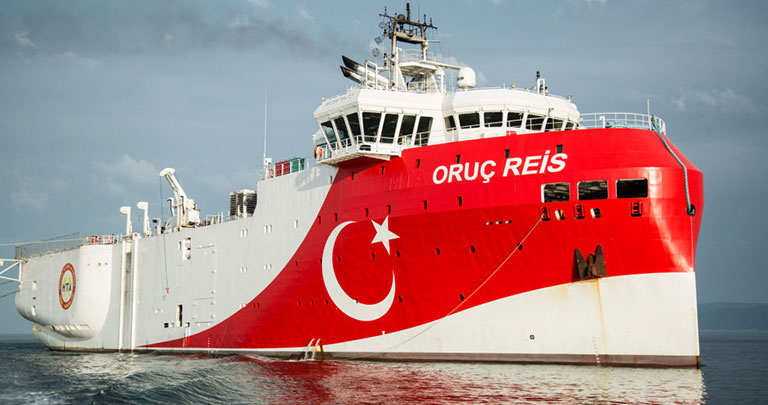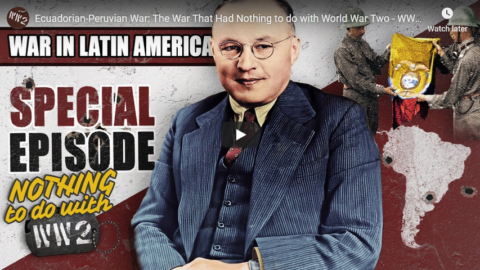Woodrow Wilson was wrong about many things, but he was a veritable hedgehog about One Big Thing: the principle of national self-determination. When it came to his dream of the League of Nations, Wilson was a utopian romantic; but on the question of how to draw national political boundaries, he was a Founding Father of what may be called National Realism.
National Realism comprehends and respects the perhaps tragic, but nevertheless undeniable, fact that most people are deeply attached to collective identities and aspirations. It accepts as both natural and important that psychological well-being would be rooted in a terroir, a set of traditions or other mythologies about who people are and where they come from, that can serve as a source of meaning and self-understanding, as well as social cohesion. It acknowledges that nationalism is a fixture of modern social and political reality.
The idea that a self-described people should have the right to determine its own collective destiny was once considered progressive. Nineteenth-century liberal nationalists like Giuseppe Mazzini in Italy and Ernest Renan in France saw in the nation-state the fullest political expression of peoplehood, a true source of law and legitimacy, a celebration of diversity, and a font of culture, art, and human flourishing. The idea of national self-determination also resonated with the American Founding and with the Declaration of Independence, which proclaimed that governments derive their powers from the consent of the governed and found in Natural Law the right for one people to “dissolve the political bands which have connected it with another, and to assume among the powers of the earth the separate and equal station to which the Laws of Nature and of Nature’s God entitle them.” For good or ill, the French Revolution had awakened modern ethnic self-awareness among European peoples, and ever since, nationalism has been the most robust political force in international affairs. Nationalism is a property of modern nation states, the same way that gravity is a property of physical matter. It is unwise to underestimate its power.
Diversity is now, supposedly, the primus inter pares of our political values. But ethnic and racial diversity, in all its colorful pageantry, is traditionally associated with empires, not republics. Diversity brings to mind Barbara Tuchman’s description of Queen Victoria’s Diamond Jubilee, with its splendid processions of Royal Nigerian Constabulary, Borneo Dyak Police, turbaned and bearded Lancers of Khapurthala and Badnagar, Zaptichs from Cyprus with their tasseled fezzes and black-maned ponies, Houssas from the Gold Coast, Chinese from Hong Kong, and Malays from Singapore, all paying homage to the great monarch. Imperial Rome was an equally spectacular kaleidoscope of nations and religions. By contrast, republican Rome was merely, austerely, Roman.
As a good Progressive, Wilson understood that modern democratic government is incompatible with multi-ethnic empire. But it took the cataclysmic breakdown of the Old World empires in the meat-grinder of World War I to bring the idea of national self-determination into political focus. It would be wise to remember that that civilization-shattering conflict was blamed in large part on the lack of congruence between state and ethnic boundaries. Most of Wilson’s famous Fourteen Points, outlined 101 years ago this month, were dedicated to correcting this discrepancy on the basis of national self-determination.
E.M. Oblomov, “The Case for National Realism: Diversity is the hallmark of empires, not democracies”, City Journal, 2019-01-02.
August 22, 2021
QotD: Woodrow Wilson, wrong on many things, but quite right on this one thing
August 17, 2021
Opening Battles of the Franco-Prussian War: Saarbrücken, Wissembourg, Wörth I GLORY & DEFEAT Week 4
realtimehistory
Published 5 Aug 2021Support Glory & Defeat: https://realtimehistory.net/gloryandd…
Early August 1870 saw the first series of opening battles of the Franco-Prussian War. The Battle of Saarbrücken was the only battle of the entire war fought on German soil, the following Battle of Wissembourg, the Battle of Wörth and the Battle of Spicheren happened right after and gave a glimpse of the carnage to come.
» THANK YOU TO OUR CO-PRODUCERS
John Ozment
James Darcangelo
Jacob Carter Landt
Thomas Brendan» OUR PODCAST
https://realtimehistory.net/podcast – interviews with historians and background info for the show.» LITERATURE
Arand, Tobias: 1870/71. Die Geschichte des Deutsch-Französischen Krieges erzählt in Einzelschicksalen. Hamburg 2018Bourguinat, Nicolas/Vogt, Gilles: La guerre franco-allemande de 1870. Une histoire globale. Paris 2020
Gall, Lothar (Hrsg.): Deutschland Archiv. Deutsche Geschichte in Dokumenten. O.O., o. J. (2007)
Mährle, Wolfgang: “Das württembergische Heer im Deutsch-Französischen Krieg 1870/71“, in: Nation im Siegesrausch. Württemberg und die Gründung des Deutschen Reichs 1870/71, hrsg.v. Wolfang Mährle. Stuttgart 2020. S. 45-64.
Milza, Pierre: L’année terrible. La guerre franco-prussienne septembre 1870 – mars 1871. Paris 2009
Roux, Georges: La Guerre de 1870. Paris 1966
» SOURCES
Bazaine, François-Achille: Episoden aus dem Krieg von 1870 und der Belagerung von Paris. Berlin 1884Chuquet, Arthur: La guerre 1870/71. Paris 1895
Engel, o.V.: Die Verluste der deutschen Armeen an Offizieren und Mannschaften im Kriege gegen Frankreich 1870 und 71. Berlin 1872
Engels, Friedrich: Der Deutsch-Französische Krieg. Sechzig Artikel aus der ‘Pall Mall Gazette’. Berlin (Ost) 1957
Goncourt, Edmond de: Journal. Bd. 5. 1869-1872. Leipzig 2013
Henderson, George: The battle of Spicheren, August 6th 1870, and the events that preceded it – a study in practical tactics. London 1891
Klein, Karl: Fröschweiler Chronik. Kriegs- und Friedensbilder aus dem Jahre 1870/71. Illustrierte Jubelausgabe. München 1897
Kriegsgeschichtliche Abtheilung des Großen Generalstabs (Hg.): Der deutsch-französische Krieg 1870/71. Erster Theil. Erster Band. Berlin 1874
Kühnhauser, Florian: Erinnerungen eines Soldaten des königlich bayerischen-Infanterie-Leib-Regiments. Partenkirchen 1898
Le Faure, Amédée: Atlas de la guerre 1870/71. Paris 1875
Meisner, Heinrich Otto (Hrsg.): Kaiser Friedrich III. Das Kriegstagebuch von 1870/71. Berlin, Leipzig 1926
Pietsch, Ludwig: Von Berlin bis Paris. Kriegsbilder 1870-1871. Berlin 1871
» OUR STORE
Website: https://realtimehistory.net»CREDITS
Presented by: Jesse Alexander
Written by: Cathérine Pfauth, Prof. Dr. Tobias Arand, Jesse Alexander
Director: Toni Steller & Florian Wittig
Director of Photography: Toni Steller
Sound: Above Zero
Editing: Toni Steller
Motion Design: Philipp Appelt
Mixing, Mastering & Sound Design: http://above-zero.com
Maps: Battlefield Design
Research by: Cathérine Pfauth, Prof. Dr. Tobias Arand
Fact checking: Cathérine Pfauth, Prof. Dr. Tobias ArandChannel Design: Battlefield Design
Contains licensed material by getty images
All rights reserved – Real Time History GmbH 2021
August 10, 2021
Franco-Prussian War – First Fighting and Casualties I GLORY & DEFEAT Week 2
realtimehistory
Published 22 Jul 2021Support Glory & Defeat: https://realtimehistory.net/gloryandd…
With the official declaration of war from France, Prussia mobilizes and calls in the defensive alliances with the other German states within the North German Confederation but also with Bavaria, Württemberg and Baden. And while the bigger armies still assemble, the first skirmishes happen near the French border.
» OUR PODCAST
https://realtimehistory.net/podcast – interviews with historians and background info for the show.» LITERATURE
Arand, Tobias: 1870/71. Der Deutsch-Französische Krieg erzählt in Einzelschicksalen. Hamburg 2018Arand, Tobias / Bunnenberg, Christian (Hrsg.): Karl Klein. Fröschweiler Chronik. Kriegs- und Friedensbilder aus dem Krieg 1870. Kommentierte Edition. Hamburg 2021
Bourguinat, Nicolas / Vogt, Gilles: La guerre franco-allemande de 1870. Une histoire globale. Paris 2020
Howard, Michael: The Franco-Prussian War. London 1961
Milza, Pierre: L’année terrible. La guerre franco-prussienne septembre 1870 – mars 1871. Paris 2009
» SOURCES
Becker, Josef (Hrsg.): Bismarcks spanische «Diversion« 1870 und der preußisch-deutsche Reichsgründungskrieg. Bd. III. Paderborn, München, Wien, Zürich 2003
Bebel, August / Bernstein, Eduard (Hrsg.): Der Briefwechsel zwischen Friedrich Engels und Karl Marx. Bd. IV. Stuttgart 1921
Fontane, Theodor: Krieg gegen Frankreich, Bd. 1. Berlin 1873
Napoléon III: Proclamation de l’Empereur. Paris, 23. Juillet 1870
» OUR STORE
Website: https://realtimehistory.net»CREDITS
Presented by: Jesse Alexander
Written by: Cathérine Pfauth, Prof. Dr. Tobias Arand, Jesse Alexander
Director: Toni Steller & Florian Wittig
Director of Photography: Toni Steller
Sound: Above Zero
Editing: Toni Steller
Motion Design: Philipp Appelt
Mixing, Mastering & Sound Design: http://above-zero.com
Maps: Battlefield Design
Research by: Cathérine Pfauth, Prof. Dr. Tobias Arand
Fact checking: Cathérine Pfauth, Prof. Dr. Tobias ArandChannel Design: Battlefield Design
Contains licensed material by getty images
All rights reserved – Real Time History GmbH 2021
June 5, 2021
Battle of Khalkhin Gol 1939 – Soviet-Japanese War
Kings and Generals
Published 17 May 2020Our animated historical documentary series on modern warfare continues with a coverage of the Battles of Khalkin Gol of 1939, as the USSR and Japan clashed in Mongolia and Manchuria. Although this short war didn’t change much in the Far East, it played a huge role during World War II.
Cold War channel: http://bit.ly/2UHebLI
Modern Warfare series: http://bit.ly/2W2SeXFSupport us on Patreon: http://www.patreon.com/KingsandGenerals or Paypal: http://paypal.me/kingsandgenerals
We are grateful to our patrons and sponsors, who made this video possible: https://docs.google.com/document/d/17…
The video was made by Leif Sick, while the script was developed by Ivan Moran
This video was narrated by Officially Devin (https://www.youtube.com/user/OfficiallyDevin)
✔ Merch store ► teespring.com/stores/kingsandgenerals
✔ Podcast ► Google Play: http://bit.ly/2QDF7y0 iTunes: https://apple.co/2QTuMNG
✔ Twitter ► https://twitter.com/KingsGenerals
✔ Instagram ► http://www.instagram.com/Kings_GeneralsProduction Music courtesy of Epidemic Sound: http://www.epidemicsound.com
#Documentary #KhalkinGol #WorldWar2
May 17, 2021
History Summarized: Africa
Overly Sarcastic Productions
Published 7 Jul 2017THE DANGER OF A SINGLE STORY: https://youtu.be/D9Ihs241zeg
It’s been brought to my attention that I made two mistakes: 1) Yes, I disappear at 18:26. Not sure how that happened. 2) At 12:25 I use a map of Africa that with some weird borders. That’s my bad. But if you look at a legit map of Africa, you’ll see the same straight lines in the places that I marked them.
(Remember: making mistakes is ok, so long as we learn from them)The Epic of Mwindo sure was cool, huh? This video is here to show you all about the lovely continent that it came from: Africa! And BOY are there a lot of misconceptions about it.
This video was produced with assistance from the Boston University Undergraduate Research Opportunities Program.
PATREON: www.patreon.com/user?u=4664797
MERCH LINKS:
Shirts – https://overlysarcasticproducts.threa…
All the other stuff – http://www.cafepress.com/OverlySarcas…Find us on Twitter @OSPYouTube!
December 16, 2020
The NKVD: from Pen-Pushers to Communist Hit Squads – WW2 Special
World War Two
Published 15 Dec 2020The NKVD started out as your regular old Ministry of the Interior. But over time, they grew out to a hugely influential and highly lethal weapon for some of the Soviet Union’s leaders.
Join us on Patreon: https://www.patreon.com/TimeGhostHistory
Or join The TimeGhost Army directly at: https://timeghost.tvFollow WW2 day by day on Instagram @ww2_day_by_day – https://www.instagram.com/ww2_day_by_day
Between 2 Wars: https://www.youtube.com/playlist?list…
Source list: http://bit.ly/WW2sourcesHosted by: Spartacus Olsson
Written by: Joram Appel and Spartacus Olsson
Director: Astrid Deinhard
Producers: Astrid Deinhard and Spartacus Olsson
Executive Producers: Astrid Deinhard, Indy Neidell, Spartacus Olsson, Bodo Rittenauer
Creative Producer: Maria Kyhle
Post-Production Director: Wieke Kapteijns
Research by: Joram Appel
Edited by: Miki Cackowski
Sound design: Marek Kamiński
Map animations: Eastory (https://www.youtube.com/c/eastory)Colorizations by:
Klimbim – https://www.flickr.com/photos/2215569…
Mikołaj Uchman
Julius Jääskeläinen – https://www.facebook.com/JJcolorization/
Dememorabilia – https://www.instagram.com/dememorabilia/Sources:
Picture of Lavrentiy Beria in court, courtesy of Фотограф – Ист.доки https://commons.wikimedia.org/wiki/Fi…
Yad Vashem 1019-2, 143EO1, 55AO6
IWM HU 106212
USHMM
I.M. Bondarenko
from the Noun Project: border police by IcoLabs, fire building by dDara, Police by Cuputo, Skull by Muhamad UlumSoundtracks from the Epidemic Sound:
Reynard Seidel – “Deflection”
Johannes Bornlof – “Deviation In Time”
Farrell Wooten – “Blunt Object”
Andreas Jamsheree – “Guilty Shadows 4”
Fluow – “Endlessness”
Johannes Bornlof – “The Inspector 4”
Gunnar Johnsen – “Not Safe Yet”Archive by Screenocean/Reuters https://www.screenocean.com.
A TimeGhost chronological documentary produced by OnLion Entertainment GmbH.
From the comments:
World War Two
2 hours ago
We have been talking about the NKVD a lot in our War Against Humanity episodes and in several Between Two Wars episodes. If you found this video to be interesting, I can highly recommend you try our B2W episode on the Great Terror and Military Purges in 1938. It provides some crucial context that we couldn’t expand on in this special episode. You can find it right here: https://youtu.be/MNnK0LAoyMo
Cheers,
JoramOther videos about the NKVD we mentioned in this special are:
– War Against Humanity episode covering the Katyn Massacre: https://youtu.be/gd5YhhNcC44
– War Against Humanity episode covering the Great Prison Massacre: https://youtu.be/kykPusygzOw
– Biography episode on Richard Sorge: https://youtu.be/fn9NyRfbSOo
November 25, 2020
Switzerland: Neutral or Nazi Ally? – WW2 Special
World War Two
Published 24 Nov 2020After the fall of France in June 1940, neutral Switzerland found itself surrounded on all sides by a hostile expansionist power. The small nation would have been a valuable possession but the jaws of the Reich hesitated to swallow it. How did Switzerland manage to exit the conflict intact and largely unscathed?
Join us on Patreon: https://www.patreon.com/TimeGhostHistory
Or join The TimeGhost Army directly at: https://timeghost.tvFollow WW2 day by day on Instagram @ww2_day_by_day – https://www.instagram.com/ww2_day_by_day
Between 2 Wars: https://www.youtube.com/playlist?list…
Source list: http://bit.ly/WW2sourcesHosted by: Spartacus Olsson
Written by: Lennart Visser & Francis van Berkel,
Director: Astrid Deinhard
Producers: Astrid Deinhard and Spartacus Olsson
Executive Producers: Astrid Deinhard, Indy Neidell, Spartacus Olsson, Bodo Rittenauer
Creative Producer: Maria Kyhle
Post-Production Director: Wieke Kapteijns
Research by: Lennart Visser
Edited by: Karolina Dołęga
Sound design: Marek Kamiński
Map animations: Eastory (https://www.youtube.com/c/eastory)Colorizations by:
Adrien Fillon – https://www.instagram.com/adrien.colo…
Cassowary ColorizationsSources:
– Pictures of Swiss Army by Strübin Theodor courtesy of Archäologie und Museum Baselland Lizenzbedingungen
– Bundesarchiv
– Imperial War Museums: HU56131
– ETH-Bibliothek Zürich: 03258, LBS MH05-02-04, M01-0756-0001
– Fortepan:3889, 92301
– National Archives
– Staatsarchiv Bern – P362
– Plan of the defence lines of the National Redoubt courtesy of Auge=mit from Wikimedia Commons
– Picture of Swiss Soldiers with anti-aircraft gun courtesy of Paebi from Wikimedia Commons
– Picture of Swiss aircraft in 1943 from theM.Pilloud – Archive familiale
– United States Holocaust Memorial MuseumSoundtracks from Epidemic Sound:
– “Other Sides of Glory” – Fabien Tell
– “Moving to Disturbia” – Experia
– “Remembrance” – Fabien TellArchive by Screenocean/Reuters https://www.screenocean.com.
A TimeGhost chronological documentary produced by OnLion Entertainment GmbH.
From the comments:
World War Two
1 hour ago
As we draw close to the end of 1941, it becomes clear that neutrality is not a guarantee of safety. Its utility as a diplomatic strategy has been discarded and is non-existent.A total of 12 sovereign and neutral nations have been invaded by Allied or Axis powers since the beginning of the war — Denmark and Norway on 9 April 1940; Belgium, the Netherlands, Iceland and Luxembourg on 10 May 1940; Lithuania on 15 June 1940 and Latvia and Estonia on 17 June; Greece on 28 October 1940 and Yugoslavia in April 1941; Iran in August 1941. Even those that are spared are compelled to assist either the Allies or the Axis or both in financial and economic terms, such as Switzerland and Sweden. Others offer voluntary military assistance such as Portugal and Spain.
November 22, 2020
Our World 100 Years Ago – November 1920 I THE GREAT WAR
The Great War
1.25M subscribers
Dissent This
What happened around the world 100 years ago?» SUPPORT THE CHANNEL
Patreon: https://www.patreon.com/thegreatwar» OUR PODCAST
https://realtimehistory.net/podcast – interviews with World War 1 historians and background info for the show.» BUY OUR SOURCES IN OUR AMAZON STORES
https://realtimehistory.net/amazon *
*Buying via this link supports The Great War (Affiliate-Link)» MORE THE GREAT WAR
Website: https://realtimehistory.net
Instagram: https://instagram.com/the_great_war
Twitter: https://twitter.com/WW1_Series
Reddit: https://reddit.com/r/TheGreatWarChannel»CREDITS
Presented by: Jesse Alexander
Written by: Jesse Alexander
Director: Toni Steller & Florian Wittig
Director of Photography: Toni Steller
Sound: Toni Steller
Editing: Toni Steller
Motion Design: Philipp Appelt
Mixing, Mastering & Sound Design: http://above-zero.com
Maps: Daniel Kogosov (https://www.patreon.com/Zalezsky)
Research by: Jesse Alexander
Fact checking: Florian WittigChannel Design: Alexander Clark
Original Logo: David van StepholdContains licensed material by getty images
All rights reserved – Real Time History GmbH 2020
From the comments:
The Great War
2 days ago
Hope the new mic does its job and the audio is alright for all of you. We also got a lot of questions about the contents of Jesse’s bookshelf and the Emergency Lockdown Studio Also Known As Jesses Living Room (ELSAKAJLR™). Think we will film an extra video with Jesse (MTV Cribs?).
November 15, 2020
Italian Proto-Fascists Occupy Fiume – The Adriatic Question I THE GREAT WAR 1920
The Great War
Published 14 Nov 2020Sign up for Curiosity Stream for 40% OFF and get Nebula bundled in: https://curiositystream.com/thegreatwar
Italy was promised a lot of territorial gains for entering the First World War on the Allied side. But in 1919, the map of Europe had changed and the Allies were less interested in only fulfilling Italian territorial ambitions. Push came to shove when Italian Fascists around nationalist Gabriele D’Annunzio occupied the coastal city of Fiume in the newly created Yugoslavia.
» SUPPORT THE CHANNEL
Patreon: https://www.patreon.com/thegreatwar» OUR PODCAST
https://realtimehistory.net/podcast – interviews with World War 1 historians and background info for the show.» BUY OUR SOURCES IN OUR AMAZON STORES
https://realtimehistory.net/amazon *
*Buying via this link supports The Great War (Affiliate-Link)» SOURCES
Albrecht-Carrié, René, Italy at the Paris Peace Conference, (Hamden, CT: Archon Books, 1966)Burgwyn, H. James, Italian Foreign Policy in the Interwar Period, 1918-1940, (Westport, CT: Praeger, 1997)
Cattaruzza, Marina, “The Making and Remaking of a Boundary – the Redrafting of the Eastern Border of Italy after the two World Wars”, Journal of Modern European History, Vol. 9, No. 1, Space, Borders, Maps (2011)
Kitchen, Martin, Europe Between the Wars: A Political History, (Harlow: Longman Group, 1988)
Lederer, Ivo J., Yugoslavia at the Paris Peace Conference: A Study in Frontiermaking, (New Haven, CT: Yale University Press, 1963)
Bozanich, Stevan, “Post-war Turmoil and Violence (Yugoslavia)”, in: 1914-1918-online. International Encyclopedia of the First World War, ed. by Ute Daniel, Peter Gatrell, Oliver Janz, Heather Jones, Jennifer Keene, Alan Kramer, and Bill Nasson, issued by Freie Universität Berlin, Berlin 2019-11-20.
Innerhofer, Ian, “Post-war Societies (South East Europe)”, in: 1914-1918-online. International Encyclopedia of the First World War, ed. by Ute Daniel, Peter Gatrell, Oliver Janz, Heather Jones, Jennifer Keene, Alan Kramer, and Bill Nasson, issued by Freie Universität Berlin, Berlin 2014-10-08.
Baravelli, Andrea, “Post-war Societies (Italy)”, in: 1914-1918-online. International Encyclopedia of the First World War, ed. by Ute Daniel, Peter Gatrell, Oliver Janz, Heather Jones, Jennifer Keene, Alan Kramer, and Bill Nasson, issued by Freie Universität Berlin, Berlin 2015-09-03.
Lynn Williams’ (Pluto Press, 1975)
Hans Ulrich, “I redentori della vittoria: On Fiume’s Place in the Genealogy of Fascism”, Journal of Contemporary History Vol. 31, No. 2, Special Issue: The Aesthetics of Fascism (Apr., 1996))
» MORE THE GREAT WAR
Website: https://realtimehistory.net
Instagram: https://instagram.com/the_great_war
Twitter: https://twitter.com/WW1_Series
Reddit: https://reddit.com/r/TheGreatWarChannel»CREDITS
Presented by: Jesse Alexander
Written by: Jesse Alexander
Director: Toni Steller & Florian Wittig
Director of Photography: Toni Steller
Sound: Toni Steller
Editing: Toni Steller
Motion Design: Philipp Appelt
Mixing, Mastering & Sound Design: http://above-zero.com
Maps: Daniel Kogosov (https://www.patreon.com/Zalezsky)
Research by: Jesse Alexander
Fact checking: Florian WittigChannel Design: Alexander Clark
Original Logo: David van StepholdContains licensed video and photos by getty images
Icons made by Freepik from www.flaticon.com
All rights reserved – Real Time History GmbH 2020
November 1, 2020
Polish-Lithuanian War – Caught Between Poland and Soviet Russia I THE GREAT WAR 1920
The Great War
Published 31 Oct 2020Sign up for Curiosity Stream and get Nebula bundled in: https://curiositystream.com/thegreatwar
Like the other Baltic states, Lithuania declared independence at the end of World War 1 and was caught in the chaotic and violent situation of 1919 and 1920 when much of Eastern Europe was in turmoil. Territories that today belong to Lithuania were claimed by Poland and Soviet Russia alike — while these two were waging a war in the direct vicinity of Lithuania.
» SUPPORT THE CHANNEL
Patreon: https://www.patreon.com/thegreatwar» OUR PODCAST
https://realtimehistory.net/podcast – interviews with World War 1 historians and background info for the show.» BUY OUR SOURCES IN OUR AMAZON STORES
https://realtimehistory.net/amazon *
*Buying via this link supports The Great War (Affiliate-Link)» SOURCES
Balkelis, Tomas, “From Self-Defense to Revolution: Lithuanian Paramilitary Groups in 1918 and 1919”, in Fleishman, Lazar & Weiner, Amir (eds.) War, Revolution and Governance: The Baltic Countires in the Twentieth Century, (Boston: Academic Studies Press, 2018)Balkelis, Tomas, “Turning Citizens into Soldiers: Baltic Paramilitary Movements after the Great War” in Gerwarth, Robert & Horne, John (eds.), War in Peace: Paramilitary Violence in Europe after the Great War, (Oxford: Oxford University Press, 2012)
Gerutis, Albertas, “Independent Lithuania” in Gerutis, Albertas (ed.) Lithuania: 700 Years, (Woodhaven: Manyland Books, Inc, 1969)
Lieven, Anatol, The Baltic Revolution: Estonia, Latvia, Lithuania and the Path to Independence, (New Haven: Yale University Press, 2005)
Mačiulis, Dangiras and Staliūnas, Darius, Lithuanian Nationalism and the Vilnius Question, 1883-1940, (Marburg: Verlag Herder-Institut, 2015)
Senn, Alfred Erich, The Great Powers, Lithuania and the Vilna Question 1920-1928, (Leiden: E. J. Brill, 1966)
Snyder, Timothy, The Reconstruction of Nations: Poland, Ukraine, Lithuania, Belarus, 1569–1999, (New Haven: Yale University Press, 2008)
Leonhardt, Joern. Der Ueberfordete Frieden, (CH Beck, 2018).
Borzecki, Jerzy. The Polish-Soviet Peace of 1921 and the Creation of Interwar Europe, (New Haven and London: Yale University Press, 2008)
Lehnstaedt, Stephan. Der Vergessene Sieg. Der Polnisch-Sowjetische Krieg 1919-1921 und die Entstehung des modernen Osteuropa, (CH Beck, 2019)
Davies, Norman. White Eagle Red Star, (Random House, 2003 (1972))
Böhler, Jochen. Civil War in Central Europe, 1918-1921, (Oxford University Press, 2019)
» MORE THE GREAT WAR
Website: https://realtimehistory.net
Instagram: https://instagram.com/the_great_war
Twitter: https://twitter.com/WW1_Series
Reddit: https://reddit.com/r/TheGreatWarChannel»CREDITS
Presented by: Jesse Alexander
Written by: Jesse Alexander
Director: Toni Steller & Florian Wittig
Director of Photography: Toni Steller
Sound: Toni Steller
Editing: Toni Steller
Motion Design: Philipp Appelt
Mixing, Mastering & Sound Design: http://above-zero.com
Maps: Daniel Kogosov (https://www.patreon.com/Zalezsky)
Research by: Mark Newton
Fact checking: Florian WittigChannel Design: Yves Thimian
Contains licensed material by getty images
All rights reserved – Real Time History GmbH 2020
From the comments:
The Great War
1 day ago
As you can see and hear we are back in the Emergency Lockdown Studio Also Known As Jesse’s Living Room (ELSAKAJLR™) and we know the sound isn’t ideal. Starting with the next episode, Jesse will have a better mic that should improve things dramatically. Next step we will also make a few more improvements to Jesse’s overall recording setup. Recording TGW episodes remotely while Jesse is in his ELSAKAJLR™ and we are in Berlin is not easy, but that bloody pandemic will not stop us.
October 23, 2020
The EU’s sudden but inevitable betrayal on Brexit deal
After a long absence, Nigel Davies posts on the breakdown of the British talks with the EU:
… I suggested that the EU would finally have to face the fact that the failure of their system was nothing to do with xenophobic little countries in the Balkans, or corrupt east European dictatorships, or incompetent Mediterranean democracies in permanent crisis.
No this disaster — the disaster that finally reveals just how impossible the European “project” is — will be at the hands of the morally superior, self righteous goody two shoes of Europe … principally France and the Netherlands.
And it will be for the obviously domestic partisan, (and completely ethically unfathomable), reason, of protecting the unnatural rights of a few fisherman who have had the unlikely and unreasonable benefit of unfettered access to British fishing waters for the decades that Britain has been in the EU.
(An unwarranted privilege for which they probably should pay compensation … Certainly if Britain was an “unjustly persecuted” Asian or African country instead of an “obviously evil” European one, compensation for this unnatural practice would be a demand of every new age propagandist of any colour.)
Nonetheless I have been amazed at the number of column inches wasted in the last week as some journalists try and pretend that it must be the British who are being unreasonable. Or indeed that there is even a remote possibility that the EU could ever come to an agreement, no matter what the British do. (Short of the British admitting that it was all a ghastly mistake, and submitting to total and permanent subservience to the benign dictatorship of the Brussels bureaucrats of course.)
The truth is that the EU is completely incapable of accepting any agreement, because that presumes that 27 individual nations can agree to overcome the drag of their own domestic policies to agree on a common good. (Or on a common decency that would require even the slightest domestic discomfort in one or more of their members.)
October 10, 2020
A century on, Greece and Turkey are back at daggers drawn
John Psaropoulos on the ever-more-heightened tension in the Aegean Sea as Turkey looks to muscle in on Greek-claimed waters in search of natural gas (or a fight):
Last summer, Greece and Turkey came closer to war than they have done since 1974, when Turkey invaded Cyprus. The drama began to unfold on 21 July, when Turkey announced it was sending a seismic survey ship, the Oruc Reis, to look for oil and gas in areas the UN Law of the Sea awards to Greece.
Within hours, the Greek and Turkish navies had deployed throughout the Aegean and east of Crete. They remained so for two months. Greek helicopters pinned down Turkish submarines off the island of Evia. Frigates shadowed each other so closely, that on 12 August two of them collided when a Turkish frigate performed a manoeuvre across the bows of a Greek one. Greek and Turkish F-16s intercepted each other between Crete and Cyprus. Greece came close to invoking the European Union’s mutual defence clause.
On 13 September, Turkey withdrew the Oruc Reis, ostensibly for maintenance, and redeployed its navy. In the coming days, Greece and Turkey are to resume talks abandoned four and a half years ago on carving out their continental shelves – vast swathes of the east Mediterranean where they may exercise exclusive commercial rights to exploit undersea resources.
For now, there is de-escalation, but expectations for the outcome of these talks are low.
“Right now, Turkey doesn’t consider itself an extension of the West. It doesn’t consider that it has commitments and responsibilities towards the West,” says Konstantinos Filis, who directs the Institute of International Relations in Athens. “It believes it is an autonomous power in the region, that it is very potent, and that all its neighbours should respect it. The Turkish leadership doesn’t appear to be prepared for compromises with neighbours it considers inferior.”
The east Mediterranean is where the world’s most significant natural gas discoveries have occurred since the turn of the millennium. Israel and Egypt are now energy independent. Cyprus soon hopes to be. But Greece potentially dwarfs them all.
Seismic explorations it conducted six years ago suggest that Greece has natural gas reserves of 70-90 trillion cubic feet – as much as Israel, Egypt and Cyprus have discovered combined, with a pre-Covid-19 market value of about $200 billion. Assuming gas is viable for the next 25 years, Greece’s reserves, if proven, would cover its energy needs and turn gas into a lucrative export to the European Union. As much as a third of the value of the gas would go to the Greek state in taxes and royalties, allowing it to pay off a fifth of its external debt, now approaching twice its GDP.
This is clearly a future Turkey, with eight times Greece’s population and four times its economy, would rather claim for itself. Legally, it cannot do so. Under the rules of the UN’s Law of the Sea (UNCLOS), the lion’s share of east Mediterranean waters goes to Greece and Cyprus. Recep Tayyip Erdogan, Turkey’s leader for the past 18 years, feels that the Greeks are hemming him in.
September 11, 2020
Ecuadorian-Peruvian War: The War That Had Nothing to do with World War Two – WW2 Special
World War Two
Published 10 Sep 2020While the Second World War grows ever more destructive, some nations take advantage of the global chaos to settle old disputes. In Peru and Ecuador, long standing territorial disputes turn violent.
Join us on Patreon: https://www.patreon.com/TimeGhostHistory
Or join The TimeGhost Army directly at: https://timeghost.tvFollow WW2 day by day on Instagram @ww2_day_by_day – https://www.instagram.com/ww2_day_by_day
Between 2 Wars: https://www.youtube.com/playlist?list…
Source list: http://bit.ly/WW2sourcesHosted by: Indy Neidell
Written by: Francis van Berkel
Director: Astrid Deinhard
Producers: Astrid Deinhard and Spartacus Olsson
Executive Producers: Astrid Deinhard, Indy Neidell, Spartacus Olsson, Bodo Rittenauer
Creative Producer: Joram Appel
Post-Production Director: Wieke Kapteijns
Research by: Marlon William Londono and Lewis Braithwaite
Edited by: Mikołaj Cackowski
Sound design: Marek Kamiński
Map animations: Eastory (https://www.youtube.com/c/eastory)Colorizations by:
Carlos Ortega Pereira, BlauColorizations, https://www.instagram.com/blaucolorizations
Mikolaj UchmanSources:
David Rumsey Map Collection, David Rumsey Map Center, Stanford Libraries
ecured.cu
From the Noun Project: Artillery by Creative Mania, engineer by Eucalyp, company soldiers by Andrei Yushchenko, Horse by RIZCASoundtracks from the Epidemic Sound:
Rannar Sillard – “March Of The Brave 4”
Johannes Bornlof – “The Inspector 4”
Fabien Tell – “Last Point of Safe Return”
Reynard Seidel – “Deflection”
Philip Ayers – “Trapped in a Maze”
Johannes Bornlof – “Deviation In Time”Archive by Screenocean/Reuters https://www.screenocean.com.
A TimeGhost chronological documentary produced by OnLion Entertainment GmbH.
August 23, 2020
The right of asylum
Tim Worstall is writing here about the situation in the United Kingdom, with would-be asylum claimants risking their lives to cross the English Channel so they can legally claim asylum in Britain, but exactly the same situation should apply with claimants entering Canada from the United States:
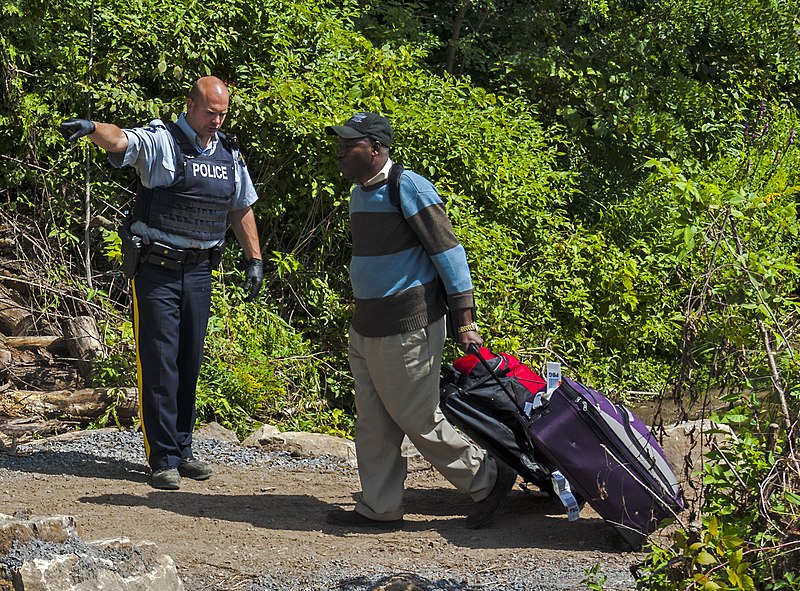
An asylum seeker, crossing the US-Canadian border illegally from the end of Roxham Road in Champlain, NY, is directed to the nearby processing center by a Mountie on 14 August, 2017.
Photo by Daniel Case via Wikimedia Commons.
Everyone at even risk – let alone reality – of substantial discrimination in their home country has the right, the right, to asylum. This is one of those international things that we should indeed agree with too. Few of us have anything but contempt for those who wouldn’t let Holocaust fleeing Jews (and or gypsies, gays, whatever, it’s just that we have substantial documented evidence about Jews who were turned away) tarnish their national doormats. Few of us think those who abused such limitations are anything but heroes. I even know of one monk who married Jewesses multiple times to bring them out by train. Umm, married multiple people, not one many times. People working within the too restrictive rules even gave us one of the finest moments of TV ever.
So, asylum, good thing.
And here’s the next thing. That right is restricted. To claiming it in the first safe place you get to. This has some oddities, if you leave Sudan by plane and step off at Heathrow then the UK is where you can – righteously – claim asylum. If you come by land then you have passed through many safe places before reaching the UK. You don’t have the right to asylum in the UK and, to be strict about it, don’t even have the right to apply.
So, people drowning in the Channel because they have to make their asylum application once in the UK? This could be true of those who are being oppressed in France. It’s not true of anyone not being oppressed in France. So there is not that need to take the open boat the 26 miles.
Sure, there’s the desire, we all understand that. But that’s a desire, not a right to asylum.
Here in Canada, we had this arrangement with the American government under the Canada-United States Safe Third Country Agreement, which our Federal Court struck down last month — incorrectly, in my opinion — as being in violation of section 7 of the Canadian Charter of Rights and Freedoms. The court allowed six months for the federal government to act, but as we all know, the federal government is unlikely to do anything as politically radioactive as passing legislation that could — and would — be seen as anti-refugee.
July 11, 2020
Truncating the state of Oklahoma
Colby Cosh on what might turn out to be the most important US Supreme Court decision in recent history:
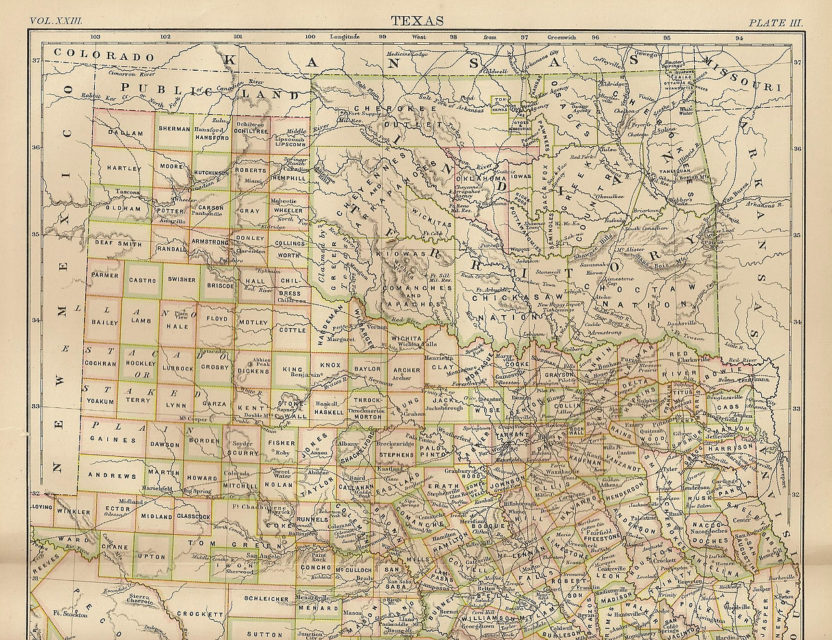
A map of Oklahoma from the mid-1880s showing county boundaries and the tribal areas of Indian Territory.
Encyclopedia Britannica, 9th edition, 1888 via Wikimedia Commons.
On Thursday the court published its judgment in the case of McGirt v. Oklahoma [PDF]. McGirt is Jimcy McGirt, a man convicted in state court in 1997 of heinous sex crimes against a four year old. A creative public defender had tried to argue for years in lower courts that, as McGirt was a member of the Seminole Nation and his crimes had occurred on territory set aside in the 19th century for Creek Indians, he was never subject to state prosecution.
He should have been tried, the argument ran, under the federal Major Crimes Act of 1885, which specifies that accusations of serious felonies against Indians in “Indian country” go immediately to federal court. Under an 1856 treaty between the U.S. and the Creeks, the Creek lands were to be a “permanent home” for the displaced nation for as long as it existed (at a time when Aboriginal-Americans were still widely expected to diminish and disappear as a race).
The formalized concept of an Indian reservation did not yet exist, but the theory, then and now, is that some Aboriginal nations have direct relationships, albeit ones of “dependence,” with the federal government. Sometimes it is said that the U.S. is the “suzerain,” the overlord, of otherwise sovereign Indian nations. The Creeks, and the other four “Civilized Tribes” who had been forced into the “Indian Territory” that once covered the eastern part of future Oklahoma, were given strong written promises that they would be held apart from the U.S. states proper and would have jurisdiction over crimes and civil matters on their lands. Only the United States Congress, as a power contracting with sovereign nations, could act to encroach upon this jurisdiction.
In a fashion familiar to anyone who has read even a shred of the history of the American Indian, these promises just kind of got … misplaced. In the early 20th century the Oklahoma tribes were encouraged by Congress to abandon communal property holding and take up individual “allotments” of Indian-held land. This ought not to have changed the underlying nation-to-nation relationship, any more than assigning homesteading parcels to settlers busted up or negated the ultimate sovereignty of the U.S. elsewhere in the American West. But that constitutional framework was more easily ignored once a contiguous bundle of territory began to be bought and sold. (Some of it became part of the city of Tulsa.) This history has helped to make similar allotment action in Canada impossible, whatever advantages it might have.

